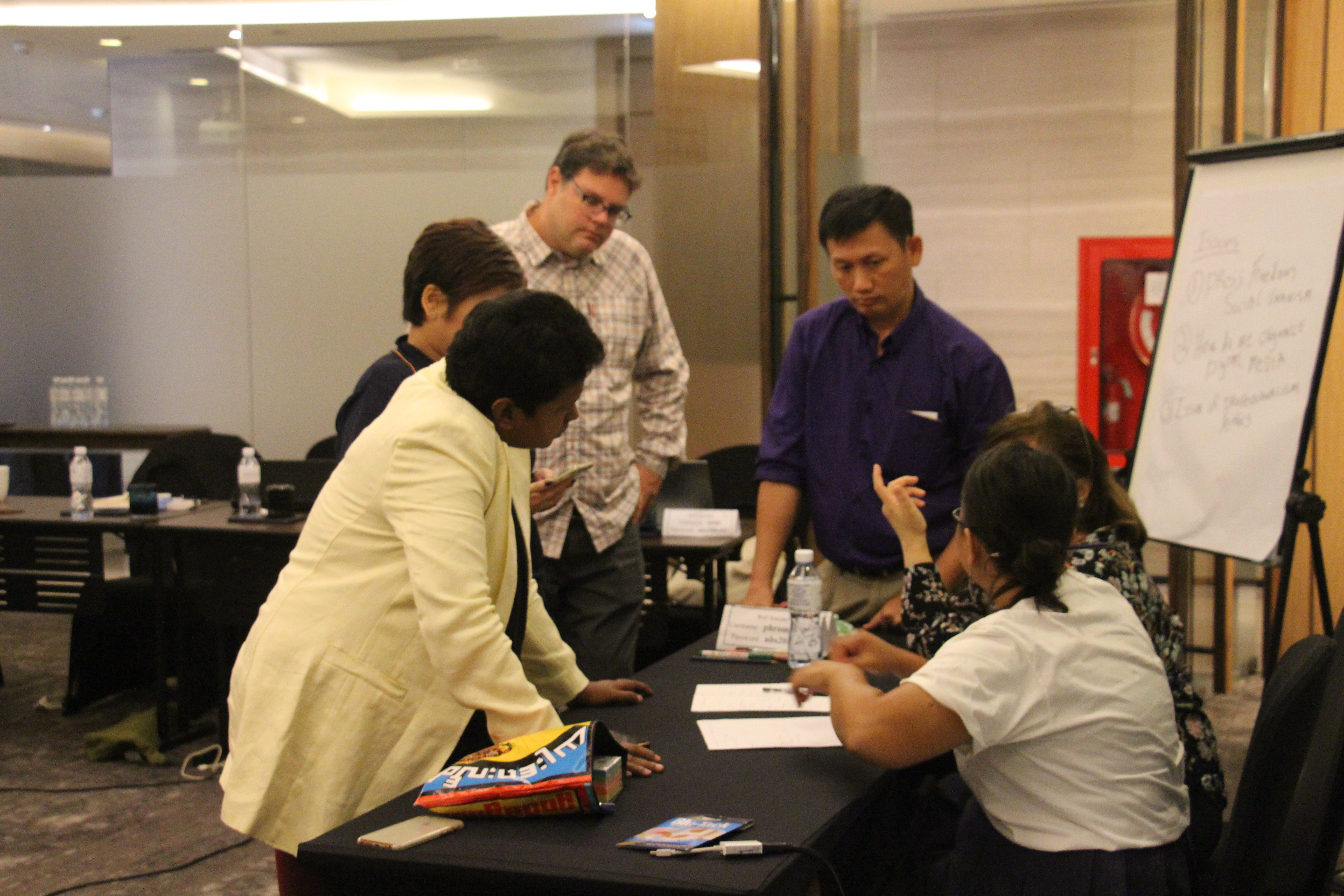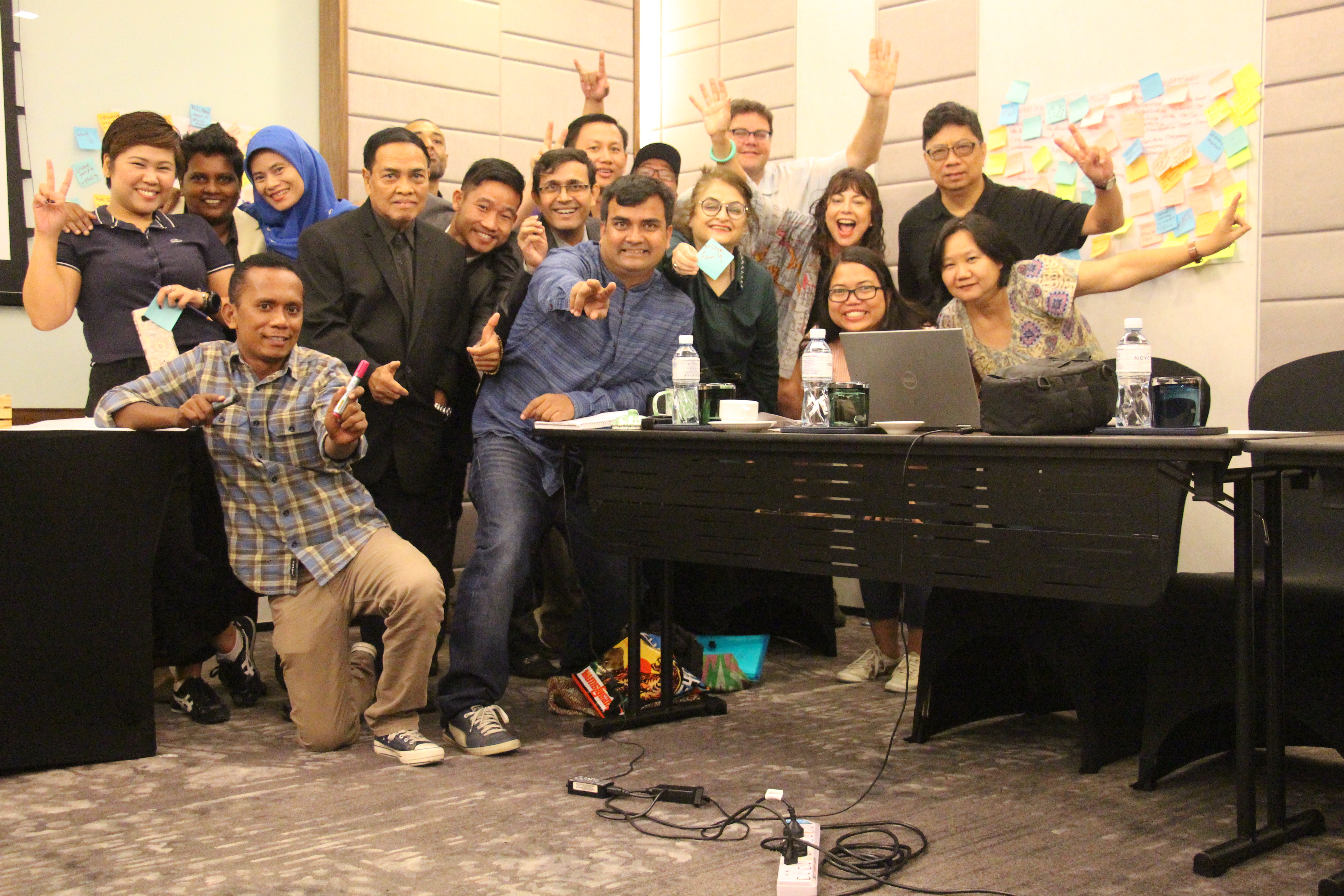Press Statement
Journalist unions need to adapt to a digital ecosystem
06 Dec, 2018
The meeting held in Bangkok on November 3 and 4, explored the growing issues that unions need to address in order to adapt to the changing media industry and to ensure the protection and regulation of digital media.
Despite traditional media currently being accepted as the mainstream, digital media is slowly challenging them with it to soon overtake as the new mainstream media. However one of the more pressing issues mentioned in the meeting was how the rise of digital media will result with the introduction of online journalistic by-products to the mainstream, such as fake news which can threaten the existing integrity of the media and journalist profession.
Justin Molito, the director of organizing at the Writers Guild of America, East (WGAE) shared the challenges and experience of organizing digital outlets workers and freelancers in the USA. He said: “Organising in the non-traditional spaces is good for social justice and future of the union… one of the challenges is being up for the challenge of instant communication and we have to adapt to that rapidfire culture of the digital communication.”
It was agreed that in order to strengthen unions in Asia, there needs to be greater inclusivity of digital media workers and further adaptation to the digital ecosystem in order to accommodate for the issues that growing digital media will bring. There is also the concern of protecting digital media workers as most are either a freelance or part-time, highlighting again the need to improve unions to accommodate for the changing journalist environment.
UNI Apro’s Director for Youth Michelle Bellino shared the experience of UNI Apro in organizing youths and bringing them to the leadership for labor rights and organizing non-traditional workers through social movement unionism. She said: “The digital media workers are mostly part-timers, project and contractual employees as well as freelancers, and we need to ensure that unions are relevant to them and help them.”

The meeting identified three key issues that unions needs to continue address – press freedom and social unionism; organizing digital media; and issue of professionalism and ethics. The meeting also formulated a series of recommendations:
- Journalists unions need to adapt to the digital ecosystem and review their membership criteria to organize digital media workers.
- Journalists unions need to integrate digital platforms into their organizing and campaigning, for stronger and effective advocacy
- Unions need to devise strategies to support media in fighting mis/disinformation as well as finding the sustainable business model.
- Skill development programs such as training need to be developed to attract young journalists to unions; to provide organized journalists with new skills in digital storytelling, data journalism, mobile journalism, multimedia and infographics.
- Unions need to support media organizations in upholding professionalism and professional ethical practices to produce quality journalism works.
- Unions in the region should exchange information and best practices to broaden perspectives and learn from each other’s experiences.
- Unions need to stand up for the rights of the digital media workers and remain vigilant to new information technology laws that are increasingly being used to restrict freedom online.
IFJ Asia Pacific acting director Jane Worthington facilitated the meeting in Bangkok and said: “Right now, there is a profound change in the journalism profession and industry which is having an equally profound impact on representative journalists unions. Some call it a crisis, others call it a revolution. But what is clear is that the struggle ahead is to adapt services and strategies to a rapidly altering media industry, where employer and employee relations are changing beyond recognition.”

Written By
 IFJ Asia-Pacific
IFJ Asia-Pacific
The IFJ represents more than 600,000 journalists in 140 countries.
For further information contact IFJ Asia-Pacific on +61 2 9333 0946
Find the IFJ on Twitter: @ifjasiapacific
Find the IFJ on Facebook: www.facebook.com/IFJAsiaPacific
Comments
Resources
- IFJ South Asia Media Bulletin, February 2023 02/15/2023 Download
- IFJ South Asia Media Bulletin, January 2023 01/18/2023 Download
- Nepal Press Freedom report 2022 01/03/2023 Download

